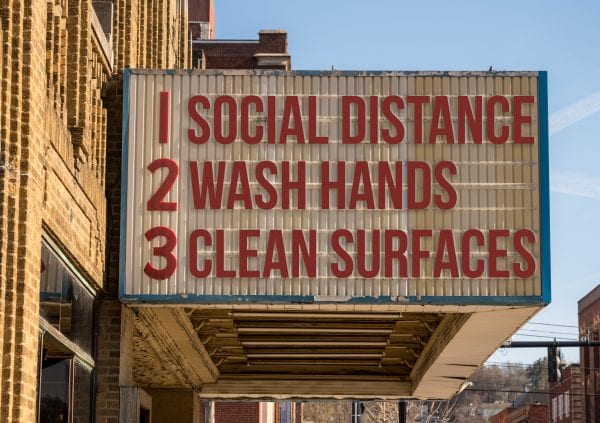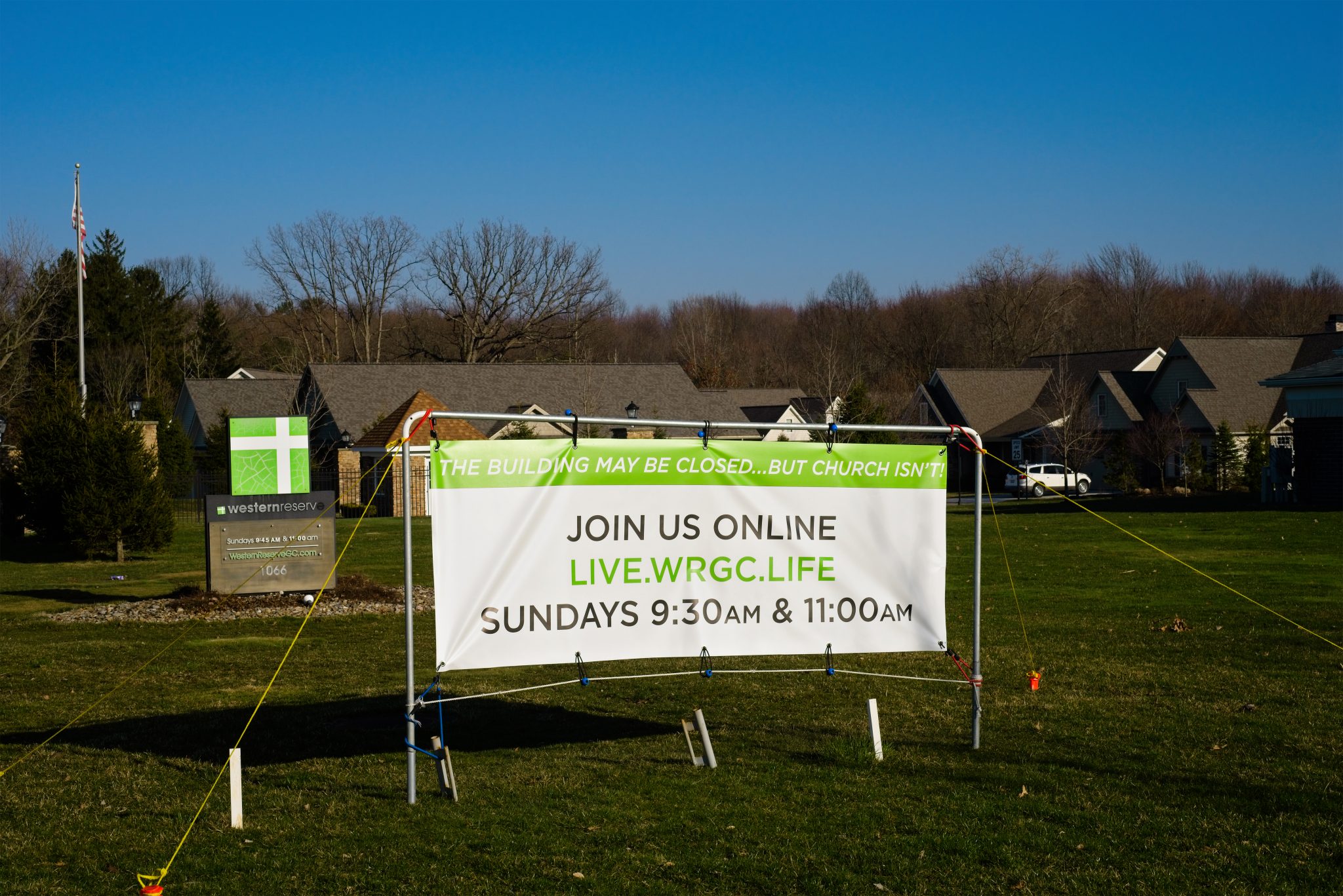Food Safety


A movie cinema billboard is used to relate three basic rules to avoid the coronavirus.
Faith-based community leaders are in a unique position to address and minimize concerns, fears, and anxieties regarding the COVID-19 outbreak.
In times of distress, the faith-based community serves as a trusted source of accurate and essential information and assistance, both to their members and to vulnerable populations. In the case of the rapidly spreading coronavirus, faith-based leaders are finding themselves in the unprecedented position of having to provide comfort, support, and essential information from a distance.
Due to the growing concern of disease spread, state government has published guidelines restricting gatherings. As a result, faith-based leaders are faced with the challenging yet necessary decision to close their physical doors and seek alternative ways to reach congregants.
As a faith-based leader, you play a key role in this battle by practicing social distancing, promoting hand washing, educating the church community, and continuing important ministries while seeking guidance from credible sources. Following are several approaches you may consider adapting during this time.
Provide Education and Outreach
One of the most important measures you can take to help prevent illness among your congregants during the COVID-19 pandemic is to educate them about social distancing and to encourage high-risk congregants and those who are unwell to stay home. Services can be modified by offering alternative ways of participation and connection, such as through phone calls or by online or recorded messages. You might consider setting up online options for congregants to give tithes, offerings, or other donations. The elderly and other high-risk congregants are especially vulnerable. Consider setting up a food delivery ministry for them or provide grab-and- go bags. These options will allow high-risk congregants to avoid settings where people might gather in a group or crowd. This would also be a great time to get out and visit your local farmers markets to get fresh produce for your family and others who can’t get out.
Help to Maintain Normalcy

Face time video conferencing allows you to stay connected while social distancing and working from home. Consider using the Zoom online meeting app on your smartphone, laptop, or computer.
When it comes to a crisis, one thing people of faith have is their ability to congregate with others of their faith to help build morale to cope. But with protocols in place mandating no meetings of ten persons or more, combined with the practice of social distancing, it is it very hard to continue services. What can be done to maintain some form of normalcy during this time when people need it the most?
- Offer online services. Hundreds of churches are now launching online church services using the internet and social media sites such as Facebook to continue their ministry when they cannot meet in person.
- Consider parking lot church services. In some communities where high-speed internet is not available, church leaders are embracing parking
lot services. Members stay in their cars with the windows down and listen to the worship service. Leaders use microphones to reach the congregants as they enjoy both praise and worship while practicing social distancing. - Embrace curbside service. Members often seek leaders for special prayer. Consider setting up drive-through prayer or confessions for members.
- Encourage congregants to tune into their favorite faith-based radio station or television channel. During these uncertain times, people may consider making their homes a place of worship. Distractions can be limited by turning off cell phone ringers and dedicating a special time for the entire family with no interruptions.
- Remember tithes and offerings. Tithes and offerings are important to every church. Make sure you set up an online or secure depository for drop-off. Many churches rely on these funds to cover the necessities of operating a physical location.
- If sick, stay at home! Regardless of the nature of the illness, help congregants understand the importance of refraining from attending physical services to protect their health and the health of others. Follow all recommendations for safety.
Reschedule Events
When possible, consider rescheduling weddings, baptisms, and funerals for later dates when all family members and friends can participate. If the event cannot be rescheduled, follow the protocols that are in place. Be sure to limit events and practice social distancing.
Use Reliable Information
It is important when providing information to your followers that you provide accurate, up-to-date information. For updates on the Novel Coronavirus Disease 2019 (COVID-19), refer to the Centers for Disease Control and Prevention (CDC) dedicated website at www.cdc.gov. The CDC website provides extensive information about the virus and appropriate steps to take for individuals, churches, schools, and businesses.
The Alabama Department of Public Health (www. alabamapublichealth.gov/index.html) offers similar resources, including up-to-date statistics on the number of confirmed COVID-19 cases in Alabama as well as the number of people that have been tested. The Alabama Cooperative Extension System (www.aces.edu) also provides daily briefings on important COVID-19 updates as well as other online educational resources to assist the community.
Amelia Mitchell, County Extension Coordinator; Janet Johnson, Regional Extension Agent; Bridgette Brannon, Regional Extension Agent; Janice Hall, Regional Extension Agent, Food Safety & Quality, all with Auburn University
Reviewed December 2021, Faith-Based Community Leadership During the Coronavirus Pandemic, FCS-2427

